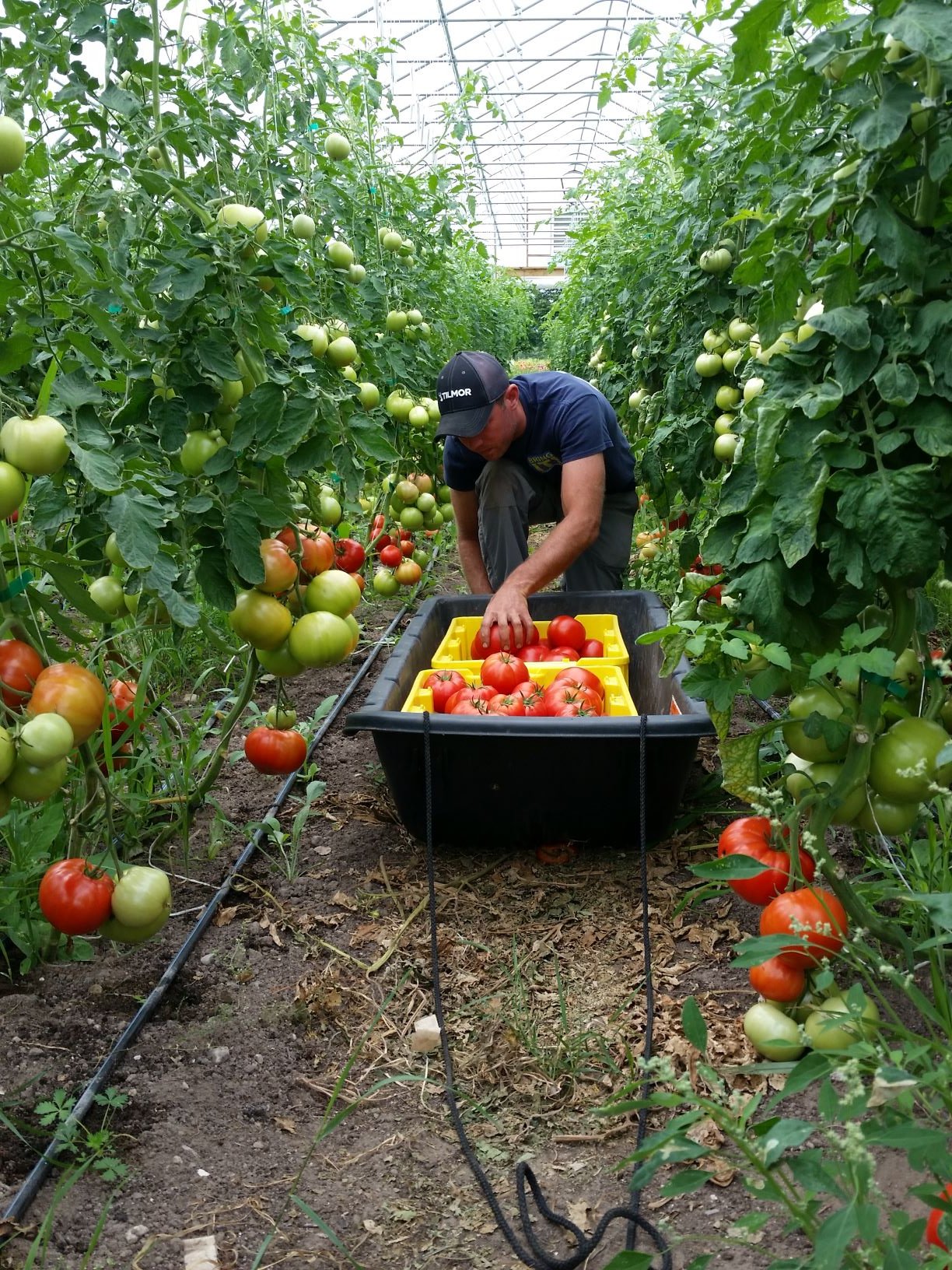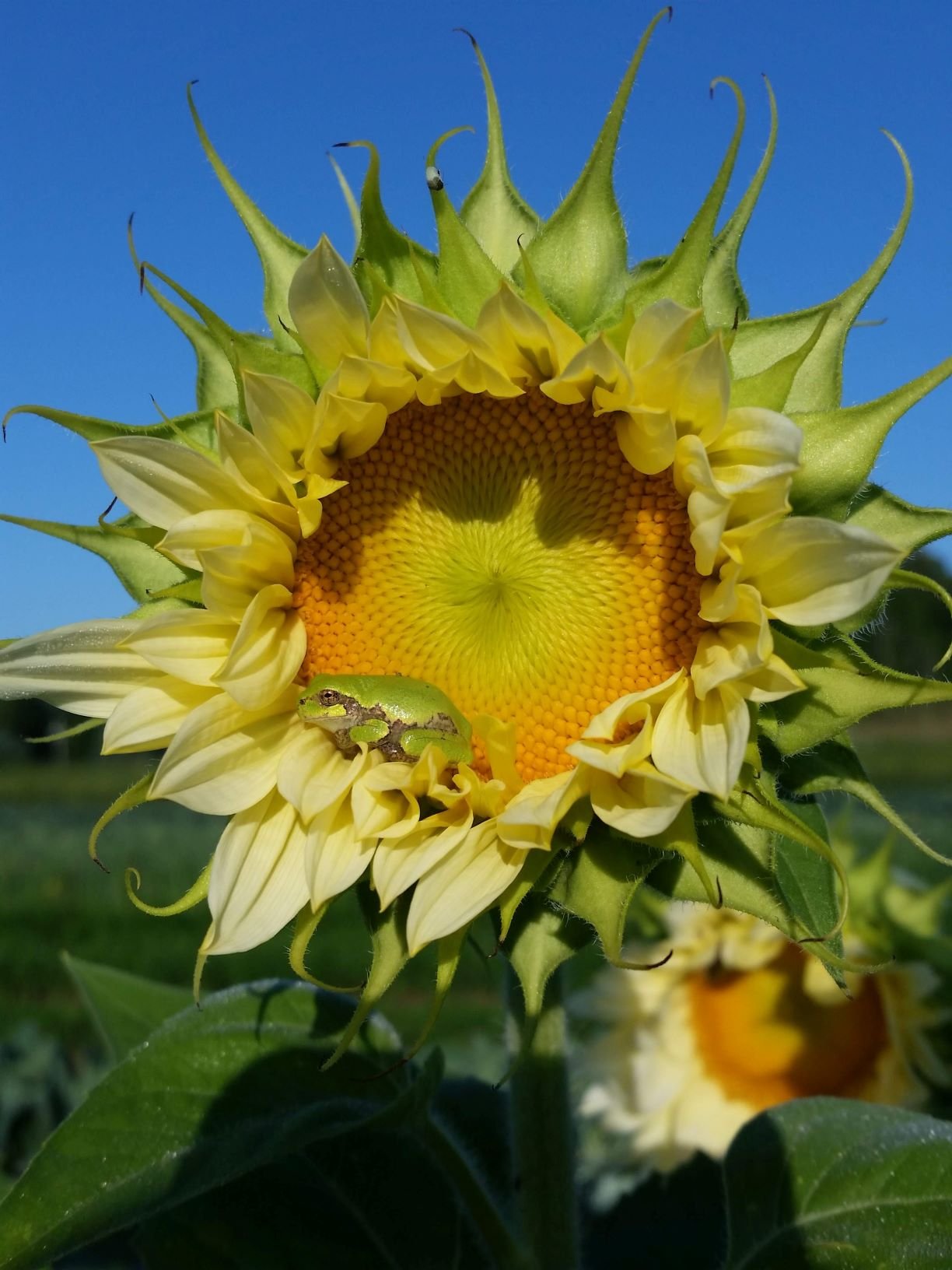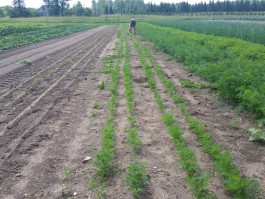Hi everyone!
Another crazy week of harvesting in the books; another week or two and we'll hit our peak season for harvesting, then it'll slowly wind down until we wrap up in December. We've been short staffed the past couple weeks which has made it that much crazier, but we're getting by. Hopefully we'll be back to full speed this week and can get caught back up again.
Falling behind is always hard, as it takes substantially longer to correct a problem than just prevent it to begin with; whether it's weeds or bugs or disease. Luckily, we have some experience with falling behind on tasks around the farm (as does pretty much any other farmer), so with a little luck, we'll get things back where we want them. This time of year, it's always about prioritizing - does weeding a new crop with small weeds that'll shortly be too big to deal with quickly take precedence over a crop that's already got some big weeds that are only going to get bigger and harder to get out? We typically opt for the former; in the time it takes to correct the problems in one crop, we can prevent weeds in a handful of other crops. As long as the weeds aren't too dense, the crops won't be affected all that much by them - though we get a bit annoyed looking at the weeds for extended periods! Reality is, many things on our to-do list go undone every year, there's simply not enough time and we'd go broke paying people to do every last one of them for us. Another farmer once told us that farming is always about putting out the hottest fire first. While we aspire to not have any fires someday, that's often how it feels - as soon as you get one thing under control, another bursts onto the scenes and requires immediate attention.
We did make what is sure to be a rather disappointing discovery for many of you - our next couple carrot batches aren't as good as we were expecting. Looking at them growing, you'd think they're the perfect carrot crop - no weeds, healthy looking and near perfect spacing. Unfortunately, we pulled some up the other day to find that they're all pretty badly misshapen and not really worth the effort to harvest. We're thinking it may be a result of too much nitrogen, but why that's the case we can't explain yet - we applied the same fertilizer we always do at the same rate we've used the past few years but for some reason, they're just not having it this year. Of course, it's possible that our move is part of the culprit and the new soil is heavier and holds fertilizer more readily, but we're not really sure. Either way, it's a bit of a disappointment for us - aside from being a pretty sizable financial loss, carrots are one of our favorites to grow, when they grow right anyways! Nonetheless, we have two more successions we're hopeful will be a bit better and we'll harvest what we can from the two bad beds and move on!
On the positive side, we mowed down some of the potato plants today to prepare them for harvest - we know some of you have been asking for them! They'll be a week or two before they show up in boxes, but after last year's crazy drought and all-around problems for our potatoes, this year they're looking pretty promising based on some samples we've pulled so far! That's one of the benefits of being as diversified as we are; when some things go wrong others tend to do well and help offset some of the financial loss. Last year, I was glad I wasn't solely a ;potato farmer, this year I'm glad we're not just growing carrots.
A few weeks ago, we purchased a tool that we have high hopes for on the farm - a new walk behind cultivator. Production only started on it a couple months ago, so it took a couple weeks to work through some of the kinks it came with, but now we're finally up and rolling. We've been debating purchasing a new cultivating tractor, as we've quickly outgrown manual cultivation (as we've learned this year!) but the $30,000 price tag was something we spent a lot of time debating. This cultivator comes in around a quarter of that, which makes it much more practical for our scale and still affords us the ability to do the same weeding tasks we'd do with the tractor; while still getting a little exercise.
Weeding is a task that nobody around here particularly enjoys and when people don't enjoy it, it can be hard to get it done right, which means more trips to weed or dealing with some weedy jungles. With some changes to our systems next year, we should be able to use this cultivator on practically every crop on the farm - something that'll drastically change how time is utilized on the farm and something I'm sure nobody working here will complain about! It's nice to finally see a US-based company diving into making equipment for our scale farm - most of our tools have come from Europe or Asia, as our scale of farming is much more popular there. It's the innovation like this that will help farms like ours succeed. It's amazing how many people are out there using their skills to improve farming, from engineers to software coders. The sheer number of tools, software and other products that exist now that didn't just a few years ago when we got started is impressive. Perhaps it's a sign that local farming is here to stay this time?
On a pretty exciting note, our countertops are finally being installed tomorrow, so with any luck, we'll finally be able to move into our new place in the next couple weeks. It's been a couple years in the making, so to say we're excited is a bit of an understatement; plus we're pretty excited to skip all of the trips back and forth to the farm - that'll free up a whole bunch of time for us! We also get to go see the final presentations tomorrow from the UMBS agroecology class that spent the semester studying the farm - it'll be fun to see what solutions they've come up with for some of our problems.
Well, off to tackle some more projects before another busy week!
-Brendan & Greta




